If you're like me and you enjoy pretending you're too good for imdb, then you probably spent the first three episodes of Daredevil trying to figure out where on earth you knew all the actors from. I mean, obviously Rosario Dawson (RENT, Clerks 2, Sin City) and Deborah Ann Woll (True Blood) were easy, while Elden Nelson (Mighty Ducks 1, 2, and 3) was a little trickier. But the one that really stuck in my brain was actually Charlie Cox. I just knew I'd seen him in something, and I absolutely refused to look up what it was before I could remember it on my own.
So naturally I didn't remember it, and was pretty much haunted by his face for a solid three days. But then, late on night as I was scrolling through my terrifyingly overbloated Netflix queue, I realized what I knew him from: Stardust. That's right, our heroic and badass Matthew Murdock had, once upon a time, played an adorable naive little commoner boy off on an adventure in a sweet and often overlooked fantasy film.
Obviously I had to rewatch it. For science.
And it was funny how, as I was rewatching Stardust, it occurred to me that it actually has more in common with Daredevil than I first thought. I mean, they have very little in common on the surface, but when we get down to the deeper themes of the stories, you can see that both of them are about masculinity.
And that while Daredevil is a relatively straightforward narrative about what it means to be a man who wants to help people, Stardust takes the more complex route of tackling gender performance in male relationships. In other words, Daredevil is about men being men, and Stardust is about men pretending to be idealized versions of men. I find that very interesting.
This concept, for the record, isn't the sort of thing you run into outside of your average gender studies class (or tumblr), so let's break down what we mean when we say "gender performance." First off, we need to make the distinction between sex and gender. Sex refers to the biological distinctions between individuals who contribute to human reproduction in different ways. Gender is the social construction we place on top of that. So male and female and intersex are signifiers of biology, and "masculine" and "feminine" are signifiers of social construct.
Good? Good.
Gender performance refers to the idea that we are always in some way "performing" our genders. Since our particular society has a particular way in which gender is interpreted and constructed, we then perform that gender when we act in certain ways. Hence why you have all this insistence that little girls need to wear pink and like princesses. That's a form of gender performance and the outside insistence that little girls must wear pink and like princesses is called "gender policing". As in, making sure that someone ascribes to the hallmarks of their socially designated gender.
We typically think of this in terms of women and femininity. I personally am a very stereotypically feminine dresser. My wardrobe consists almost exclusively of dresses and cardigans, I have long hair, and I like wearing flower crowns unironically. These are all stereotypically feminine things, but there is nothing biologically female about them. They're inanimate objects, so technically they have no gender, just what we ascribe to them.
Still, I could be easily said to be "performing" my femininity on a daily basis. And that's fine. I'm aware of that, and I've made the choice that I like dresses whether or not society tells me I should. Where we get into troubled waters, though, is when we come upon situations where the social construct of gender is being enforced on people who don't want it. And that's where Stardust comes in.
But first, some background on the movie.
Based on the Neil Gaiman novel of the same name, Stardust is a generally respected but not super popular fantasy movie about a young man who falls in love with a star. The story, which is a little too vast to be explained in detail, starts when the dying king of a hidden fantastical kingdom gives his remaining heirs a task: they must find a special ruby necklace and then kill each other until only one of them remains. Whoever remains, the last living male heir of the king, will be king.
For some reason, the ruby goes a little bonkers and shoots up into the sky where it hits a star, causing the star to plummet to earth. This plummeting is seen by a lot of people. The princes see it and think of it as a good omen. The witches see it and know that it means there's a star wandering around and if they eat the star's heart then they will live forever, young and beautiful. And a young man, Tristan Thorne (Charlie Cox) sees the star fall and vows to bring it back for his lady love, Victoria (Sienna Miller).
This means that Tristan will have to escape over the Wall that separates his town from the magical kingdom he's always heard might be on the other side. And this is notable because Tristan himself originally came from the other side of the Wall. His father managed to sneak over once, met a girl, fell in love, and then nine months later was gifted with a basket full of baby left at the Wall. So clearly Tristan is on a quest that will bring some self-discovery along with it.
Upon reaching the star, Tristan is genuinely shocked to find that it's not a lump of hot metal, but actually a woman, Yvaine (Claire Danes). Tristan's still determined to take her back to Victoria - who is seriously the queen of negging - but unshockingly, as they go along the road and have adventures and mishaps, he slowly falls in love with Yvain and she falls for him.
Now, the majority of the book is, in good Gaiman tradition, a series of loosely plotted, highly imaginative set pieces. There's the inn made out of magic where the witches try to kill Yvain, the traveling market, the witches' castle, the princes following around and murdering each other all the time, and so on. But the real one I want to focus on right now is the pirates. Because of course there are pirates.
The pirates come in about halfway through the story. Tristan and Yvain are trapped by the main evil witch (Michelle Pfeiffer) and the only way out is to use his Babylon Candle. It's a form of teleportation that works by telepathy. He tells her to think of "home" and they shoot off.
The problem is that Tristan thought of his home and she thought of hers and they end up stranded in the middle, trapped on a cloud in a lightning storm and quickly scooped up by lightning fishermen people pirates. The men think that Tristan and Yvain are trying to encroach on their territory, and make a bunch of really horrible insinuations about them, rape threats among them, until the Captain (Robert DeNiro) takes them to his cabin to interrogate/torture them further.
Then he reveals Tristan to the crew and claims him as his nephew, giving Yvain to him as a "present". There, all good, he's performed his masculinity enough and can go back to chatting with these "charming young people" about culture and London and all that sort of thing.
Captain Shakespeare, we learn, is a very learned man and not a person who particularly cares to abide by gender norms. He likes lace and frills and sometimes he dances the can-can alone in his room and sometimes he cross-dresses. The whole thing is played for laughs, but it's a little sadder once you realize that Captain Shakespeare lives in utter fear of his crew finding out that he's not authentically masculine in the way they want him to be.
It turns out, however, that he needn't have worried. When his crew finds out about their Captain's predilections, we actually discover that they've known all along, and have been covering for him. So that's all well and good, and we discover that Captain Shakespeare's performance of masculinity has been unnecessary, right?
Well, not really, actually. Because even though we now know that the crew both is aware of and doesn't care about their Captain's more feminine traits, they still insist that he perform masculinity in front of them. Not verbally, of course, but by subtle encouragement of his more masculine traits. In other words, the message of that plotline seems to be that it's all well and good to understand that gender is really just a performance and there's nothing behind it, as long as we all agree to keep performing it.
Which is kind of messed up. I mean, when we get down to it, Robert DeNiro's character is all about performing masculinity whether or not anything is backing that masculinity up. Performance is more important than substance.
And this is a dangerous message to send. While Tristan himself is less than conventionally masculine, he's still the romantic hero and part of his maturation as a character involves him learning to fight. Ironically, he learns the trappings of traditional masculinity from Captain Shakespeare. But by the end of the film we've seen that Tristan is transformed into a much more usual hero for these sorts of stories. And yes, that does help him save the day and help Yvain and eventually become King*. So that's nice. But there's something a little discomfiting about the end message.
"It doesn't matter if you actually are conventionally masculine or not, as long as you act like it in public." That's weird. That's a weird moral for this movie to be telling us. And I know that it's not really intentional. I'd be willing to bet that it's all just supposed to be funny, that the pirates insist Captain Shakespeare keep saying "Aaaaargh" and calling women wenches even after they know that he's secretly a classical dancer with excellent pronunciation, but it's weird.
It's especially hard to grasp when you consider that this is a movie for children. I mean, not completely for children, but definitely made with a "family audience" in mind. What kind of strange messages is the confusion of gender performance in this film giving to the kids who watch it? Hell, what kind of messages are the adults getting?
Masculinity is sort of the silent problem in our culture. Everyone seems to have an opinion on how it should be presented, but no one really wants to get in there and define it. Masculinity, though we all pretty much understand that it's socially constructed, is seemingly very fragile. Like it could shatter if it gets glitter on it. And this idea that Captain Shakespeare's masculinity is vitally important as performance only adds to the confusion.
I don't have a solution here, for the record. I wouldn't call myself a masculinity expert. But I do think it's worth pointing out how strange this exploration of gender performance is. I mean, we all agree that if gender is a thing we perform, then it's probably okay to perform it in our own ways, right? We don't all have to agree about what femininity is in order to have a diverse and happy society. The same should go for masculinity.
But this movie doesn't tell us that. Instead, it gives us a world where the most important thing you can do as a man is seem "manly", whether or not there's anything backing that up. And that's messed up.
*Long subplot that is rather unclear in the film, but it turns out that Tristan's mystery mother was the lost princess all along.


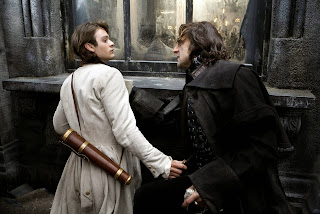

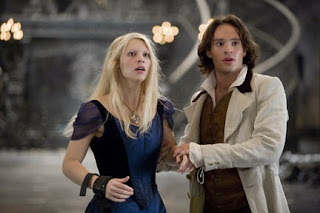
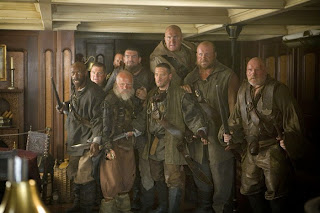

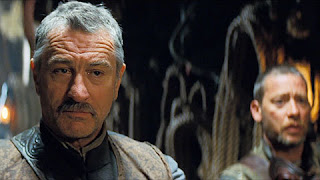
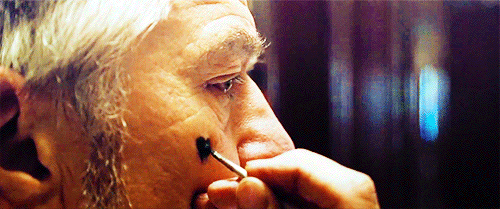
CALL GIRLS
ReplyDeleteESCORT
ESCORTS
KOLKATA FEMALE ESCORTS
KOLKATA HOTEL ESCORTS
KOLKATA MODEL ESCORTS
KOLKATA CALL GIRL
KOLKATA CALL GIRL SERVICE
KOLKATA CALL GIRL SERVICE
KOLKATA CALL GIRLS
CALL GIRL
CALL GIRLS
CALL GIRLS SERVICE
CALL GIRL SERVICE
KOLKATA INDEPENDENT CALL GIRLS
KOLKATA INDEPENDENT CALL GIRL
ESCORT
KOLKATA INDEPENDENT MODEL ESCORTS
KOLKATA CALL GIRLS ESCORTS
KOLKATA CHEEP ESCORTS
KOLKATA CALL GIRLS NUMBER ESCORTS
KOLKATA HIGH PROFILE ESCORTS
KOLKATA AIRHOSTESS ESCORTS
KOLKATA PARK HOTEL ESCORTS
KOLKATA PARK HOTEL ESCORT
KOLKATA FIVE STAR ESCORT SERVICE
KOLKATA HOUSEWIFE ESCORT SERVICE
KOLKATA BOUDHI ESCORTS
INDEPENDNET ESCORT IN KOLKATA
KOLKATA ESCORT AGENCY